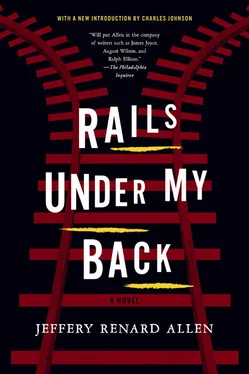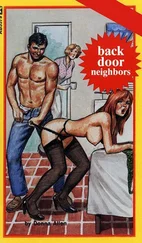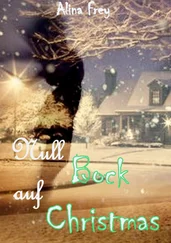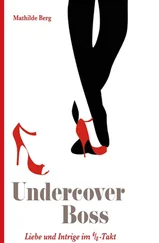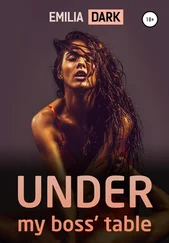From the first, Hatch loved words. Had to talk to him constantly or he’d cry. Sucked his bottle dry and left milk words inside the empty glass. I WANT MORE. And at night, he kept his hand at your mouth, touching, exploring. His first teeth — two buckteeth — looked like books. Had to read him a story before he went to bed and one when he got up. And he learned to read almost before he could talk. In his room, neatly stacked books cover his windowsills like row houses, many that you carried home from the Shipcos’ one stone-heavy book at a time. Following the text with his index finger, word for word. (Some books he will flip through quickly, as if his forked fingers are divining for rapidly evaporating water.) In grammar school, he always won the class spelling bee— but you had to whip his time tables into him —cept that one time the letters knotted up in his throat, and the veins in his neck strained as they tried to draw up the words, and the tears fell.
One kindergarten afternoon (or was it Head Start?), he phoned her at the Shipcos’. His class had gone on a field trip (to the Aquarium? Planetarium? Zoo? the Museum of Science and Industry? the Historical Society?). Our city had a black founder, Hatch said. His name was Marcel Vin. He established a trading post at the mouth of the Central River and lived there for seventeen years in a crude log cabin with a Potawatomi woman and twenty-three works of European art. Sheila, he said. I had an accident.
What?
I had an accident.
What?
An accident. I got some bowel movement in my pants.
Just like him to say it like that. Book say it. His hands had grown books. You speak to him, and he closes the book upon one finger to keep the place. Maybe it was the books that made him turn serious. Made him stop smiling. And maybe one of the serious books put the idea in his head that God didn’t exist. One had hooked him on the theory that anything he could imagine had happened somewhere sometime. Flying monkeys. Talking roaches. Hyenas that work as stand-up comedians. One day, he approached her, face serious.
Mamma? I got something to tell you?
Yes?
You ever heard of the Lord Christ?
She said nothing. What kind of question was this? He knew religion was no joking matter. Had she not brought him up in the church? Had they not attended Father Rivers’s sermons three nights a week, where music weaved in and out of the preacher’s words, hid like termites in the wood of your Bible, soaked into the after-service corn bread, chicken, and cabbage, followed you home, echoed in your bathwater, muscled into the sack of your pillow, added an extra pump to your man’s loving, and tapped you on the shoulder when you tried to sleep?
Well, Mary gave the Lord Christ these toy clay birds. Guess what the Lord Christ did wit them?
You been reading your Bible? She had bought him the abridged one, the children’s edition, the version she had given Porsha years before, after Father Tower recommended it.
Sometimes. Guess what the Lord Christ did?
She was afraid to ask. What?
The Lord Christ, he took the first one, see, and rolled it in his sandbox. Then he painted the wings yellow. Then he dipped the beak in some red jelly. Then he brought it to life as a goldfinch. Hatch’s face was completely serious. Guess what the Lord Christ did wit the other one?
Where’d you read this?
The infant Christ, he dipped that second bird in his milk and brought it to life as a dove. Hatch walked off, his back and shoulders stiff and stooped. Them big buckteeth, Lula Mae said. He got too much mouth. Boy, stop that chunkin!
Seven. He musta been seven — cause his face became like Lucifer’s face; cause he had stopped smiling; you saw the buckteeth only when he spoke — when he asked her, If God is good and God is great, why he do that to Cookie? Hatch wore Cookie’s photograph like a mask.
Her lips grew tight with anger. She wanted to say, God works in mysterious ways, but she needed something fresh. The young won’t touch anything old and wormy. What do you know about it? she said. Cookie passed befo you was even born.
And it seemed that every day that followed, he had a new challenge.
If God made man, who made him?
Why God test Job? Ain’t cruelty a sin?
Why did God tell Abraham to kill his son? Would Lucifer kill me?
Noah was mean. Cain ain’t do nothing wrong. He wasn’t naked.
If the Lord Christ so kind, why he put them demons in them pigs? I like bacon.
Why the Lord Christ put his two bloody paw prints on Judas’s face?
So she told him, Stay on the track. Cause a train can’t run but on two rails in one direction. Hold on, lest your hands slip from the rail and you go splashing into water. Hold on.
What if it gon crash? Hatch asked. Should I still stay on track? And can’t trains back up? She slapped the smart words back into his smart mouth. Cause religion was more than ligion; it was the whole thing, not simply using part of the thing and hiding the rest, like Gracie, who made the Bible her poker face.
Last Christmas dinner, Hatch had even refused to say grace.
God is good. God is great. Thank him for our food. Amen. Porsha passed the pea of prayer to Hatch.
Hatch sat with his face bent over the plate.
Hatch, your turn.
Hatch watched his plate.
Hatch?
I can’t think of nothing.
Christ wept, Gracie said. Christ wept. Say it.
Hatch watched his plate.
Say it, Porsha said. Why you always tryin to be a nonconformist?
Shut up.
Who you tellin to shut up?
You.
Boy, you ain’t talkin to one of yo little friends. I’ll knock—
Say it, Lula Mae said. Before I knock them big horse teeth out yo mouth.
Nephew, John said, brown eyes blinking behind his silver frames, jus say it. So we can eat.
I don’t remember nothing.
Couldn’t say nothing when he was sposed to, only when he wasn’t. Hatch’s brain heated up too fast, putting words where they don’t belong.
But John said Hatch was too slow. Nothing fast enough for John. Sheila — John adjusted his silver-rimmed spectacles, watched her, his eyes like two brown animals caged behind glass — when you gon release this boy from yo apron strings?
Now, John, you know I ain’t got him in no apron strings.
Damn if you don’t. Do you know that he almost fell in Dave’s grave?
Yall be sure to lay a wreath on Daddy Larry’s grave.
Where he buried?
That man Lula Mae work fo show you. Thinking, Cause he lies close by the river near the dark fence where the troubled waters flow and toss his body to and fro in the casket and the pigs used to run to him like puppies.
And don’t forget the rest of yo kin, Big Judy and Koot and Nap.
I didn’t, Hatch said. He watched John, face saying, Why you do this to me? He forever tried his best to keep step with his Uncle John.
We lowering Dave in the grave and the next thing I know, Hatch here—
I didn’t, Uncle John. You lyin.
Boy, Sheila said, watch yo mouth.
He lyin.
Sheila slapped his mouth closed.
Last summer — the summer after the cicada spring; yes, buried in the blind ground, surely they prophesied the coming heat —she felt the slighest lifting of her heart when Hatch told her he had found a job playing Reverend Ransom’s Sunday service at the New Promised Land Baptist Church. She felt light inside, even if he only doing it for the money. She dropped to her knees like an exhausted cross-country runner, arms raised in victory, and lifted praise to the Most High.
SHEILA HEARD A CLICKING SOUND, like a train bumping over tracks. Black water towers rose above distant buildings like bad hats. They got water towers all over New York, Lucifer said. Hear they work, too. She felt a strange sharpness, a cutting sensation. She saw two eyes dry and black. Heard a clicking sound, sharp eyes working, cutting her open, perhaps searching for some secret reservoir. The young Oriental woman’s thin lips were drawn as if framing a difficult question. The blood went thick behind Sheila’s eyes. The Oriental woman looked both ways over the tracks, and kept looking, like someone crossing the street, her black gaze flying and buzzing past Sheila with each turn of her head. Birds cut through the silence. Then she saw the shaggy tremendous form of her train, an invisible smoke-colored shape — for she heard it before she saw it — hovering above the arched curve of track where it came around the building corner, smooth as water from a hose, this silver train with shadow on its roof, a seepage of moisture somewhere between earth and water, then the water level with her vision, the sound too, rushing and flowing, fish-flopping out of dark deeps, washing a metal sound, a thumping pail. The train hovered in the approaching distance, shaking steady on tracks, wavering, as if caught in a slow drizzle of rain, and the Oriental Asian woman looking both ways, hand clamped tight to her purse, and for a second that was more or less than a second, holding Sheila in her gaze, and Sheila seeing a thin black wing of charcoal-sketched eyebrows, and two black eyes punctured into a porcelain-smooth doll face (for she really was a doll, small and smooth and perfect), and the doll lips creaking open, parting to smile (would you call it that?), shout (call it that), silent beneath the train’s roar, or as if the wind-loud train itself had lunged out the tunnel of her mouth, then the Oriental Asian woman moving with ease, flowing, and disappearing, not as Sheila might have imagined it, a slippery log rolling out from under her, no, not like this, but sinking, the anchor of her purse drawing her down, or the platform itself collapsing beneath her, a ringing chorus of rails.
Читать дальше
